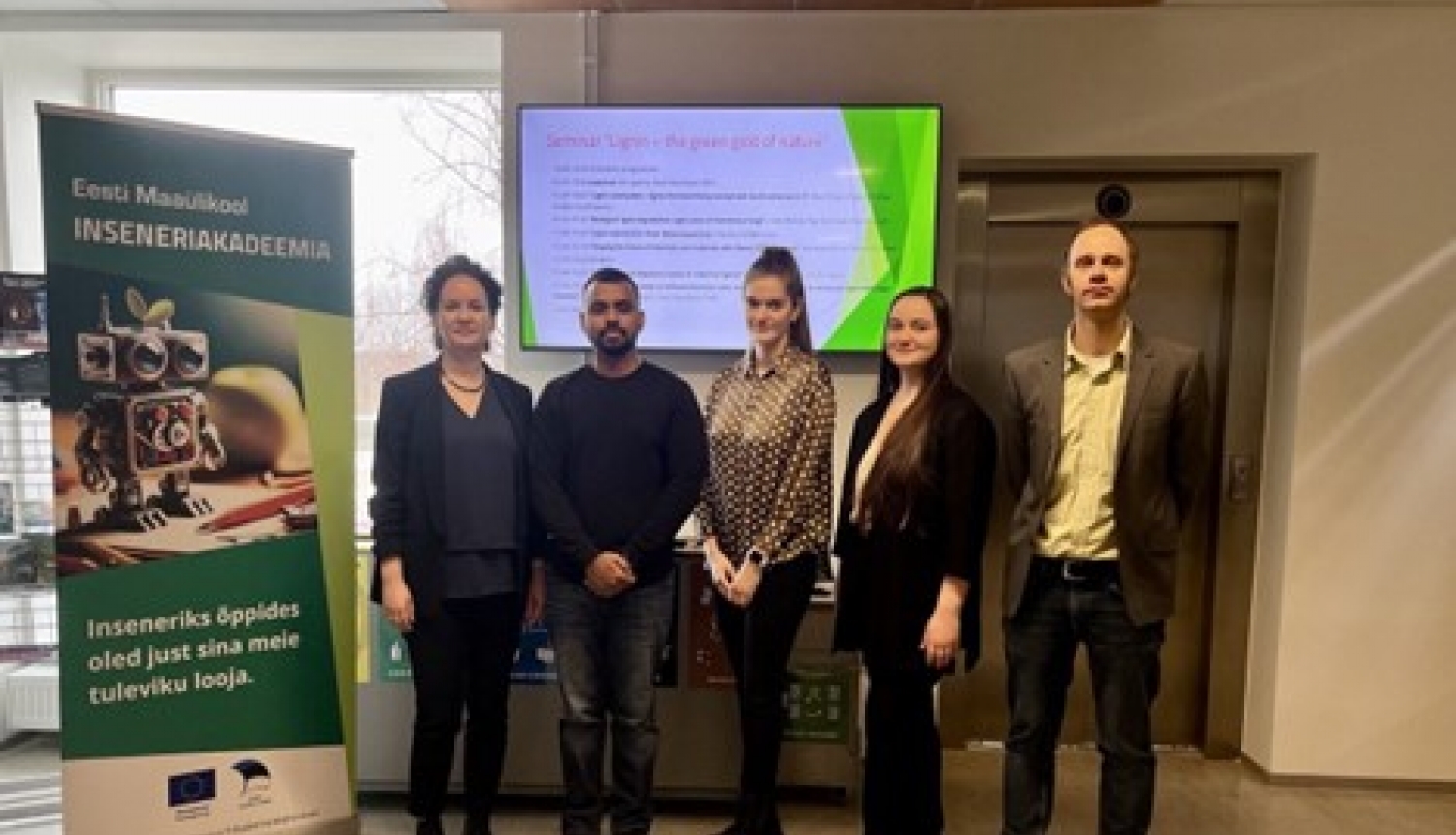Within the Baltic Research Programme project, Riga Technical University scientists in collaboration with partners from Estonia and Norway are developing technologies for processing biomass into high-value raw materials.
The valorisation and sustainable use of by-products from the agriculture and food industries is currently a major focus of attention. The zero-waste concept is being promoted, with a focus on minimising waste and maximising the use of plant-based agri-food raw materials. At the same time, one of the waste/waste products in the agro-food industry is lignin, a traditionally unused component of lignocellulosic biomass. Currently, biomass valorisation involves the use of cellulose and hemicellulose for further processing. Lignin remains as waste. The NoviCo project introduced the "lignin first" principle.
To this end, the project evaluated and synthesised protic ionic solutions as sustainable alternatives for lignin removal. Electrochemical depolymerisation was also analysed as a method for lignin degradation. At the same time, the produced holocellulose was subjected to enzymatic hydrolysis and fermentation. Overall, NoviCo has developed an integrated (bio)chemical process for the efficient valorisation of lignocellulose that can be transferred to industrial production scales.
The NoviCo consortium has created new world-class expertise in the biomass recycling and waste efficiency value chain and a strong commitment to maximise the dissemination, communication and use of results. The project has developed collaborative activities on various interrelated topics, including knowledge transfer on methods for the analysis of lignin and its depolymerisation products and electrochemical conversion methods, proteomics of hydrolytic enzyme-producing fungi with the aim of harmonising and synchronising research methods.
The Baltic Research Programme is implemented with the support of EEA grants within the framework of programme "Research and Education", which is implemented by the Ministry of Education and Science and the Latvian Council of Science. The total funding of the programme is 8,676,084 euros, of which the state budget co-financing is 15% or 1,301,413 euros and the EEA co-financing is 85% or 7,374,671 euros. In the Baltic research programme, 9 research projects and 5 small cooperation projects are implemented in Latvia.
The Baltic Research Programme’s project “Novel biorefinery concepts for valorization of lignocellulosic residues (NoviCo)” is implemented by the Technical University (Latvia), SINTEF AS (Norway), Estonian University of Life Sciences (Estonia).
More information https://eeagrants.lv/en/2021/05/08/novel-biorefinery-concepts-for-valorization-of-lignocellulosic-residues/





